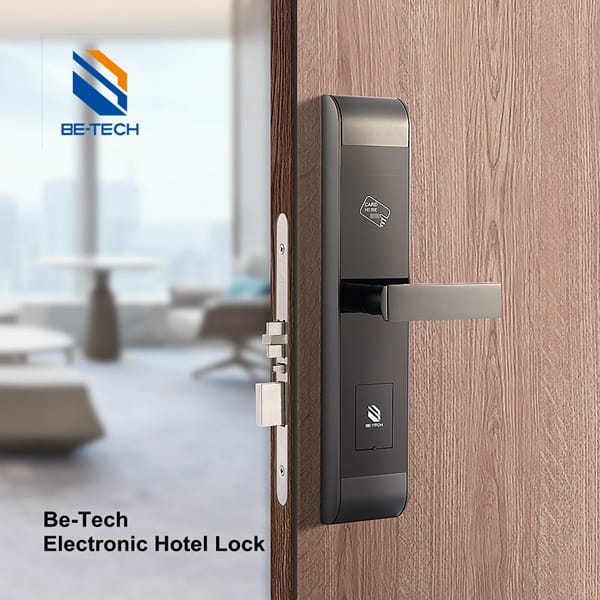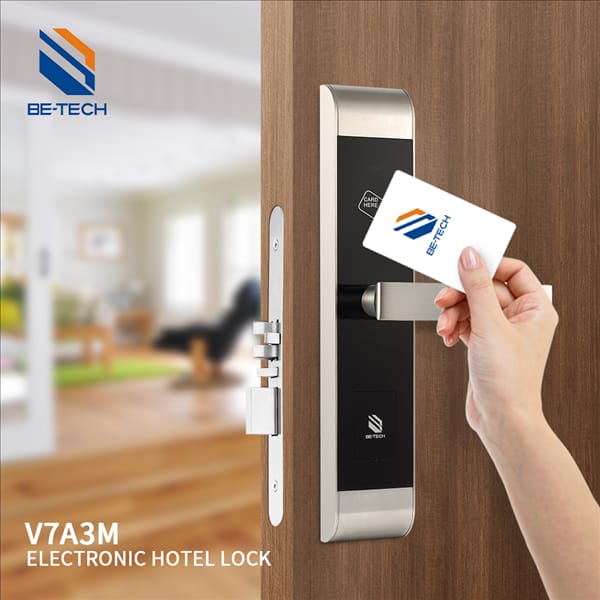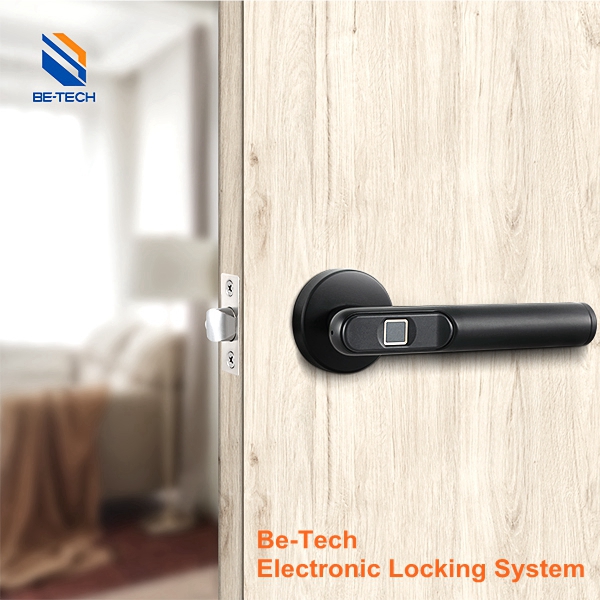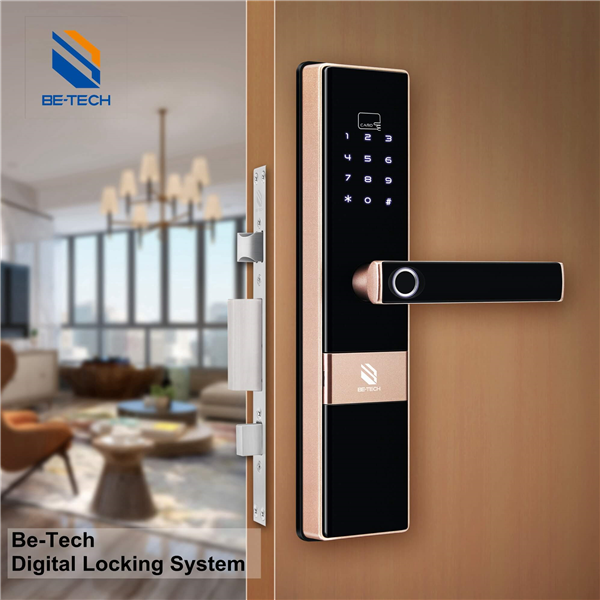In the fast-paced world of hospitality, security breaches can cost hotels dearly, both financially and reputationally. A single incident can erode years of built-up trust and deter future guests. As we look toward 2024, the demand for more robust, convenient, and data-driven security solutions has never been higher. This article explores the latest innovations in hotel lock technology and what hotel managers need to know to stay ahead of the curve.
The Evolution of Hotel Security: From Traditional Keys to Smart Solutions
The journey of hotel security has been marked by significant leaps in technology. From the rudimentary lock-and-key systems of the past to today’s sophisticated smart locks, the industry has continuously sought ways to enhance guest safety and improve operational efficiency.
- Traditional Keys and Their Limitations: For centuries, hotels relied on physical keys to grant access to guest rooms. This method, however, was inherently vulnerable to security breaches. Lost or stolen keys could lead to unauthorized access, and the cumbersome process of re-keying locks was both time-consuming and expensive.
- The Rise of Electronic Key Cards: The introduction of electronic key cards in the 1970s marked a significant shift in hotel security. These cards, typically encoded with magnetic stripes, provided a more secure and convenient alternative to traditional keys.
The Emergence of Smart Locks
Building upon the foundations laid by electronic key cards, smart lock technology represents a transformative leap forward. By leveraging advancements in radio frequency identification (RFID), Bluetooth communication, and mobile app integration, smart locks empower hotels with unprecedented levels of security, convenience, and operational control.
Keyless Entry: Enhancing Guest Convenience and Streamlining Operations
At the heart of smart lock technology lies the concept of keyless entry. By eliminating the need for physical keys or cards, smart locks provide a seamless and efficient experience for guests while simplifying operational processes for hotels.
- Mobile Access: One of the most transformative aspects of keyless entry is the ability for guests to use their smartphones as room keys. Mobile access not only eliminates the inconvenience of carrying physical keys but also aligns with the growing preference for contactless interactions in a post-pandemic world. According to Deloitte’s 2022 Travel Outlook Report, hotels with mobile access see a 12-18% increase in direct booking revenue. Moreover, research indicates that 46% of travelers consider keyless entry essential when choosing a hotel.
- RFID Lock Systems: RFID technology, utilizing contactless communication between a keycard and the lock reader, offers a quick and reliable method for keyless entry. Guests simply tap their RFID-enabled cards against the lock to gain access, streamlining the check-in process and minimizing wait times at the front desk.
- Operational Benefits: From the hotel’s perspective, keyless entry systems contribute significantly to operational efficiency. By reducing the need for physical key management, hotels can save on re-keying costs and streamline staff workflows. Furthermore, real-time access control enables staff to manage guest entries remotely, improving response times to security concerns and facilitating seamless communication between departments.
Beyond Keyless Entry: Smart Locks with Advanced Security Features
Modern smart locks go beyond the basics of keyless entry, offering a suite of advanced security features designed to fortify hotel premises and protect guests:
- Biometric Authentication: Biometric authentication represents a significant advancement in security by utilizing unique biological characteristics to grant access.
- Fingerprint Recognition: Fingerprint scanners integrated into smart locks provide a highly secure method for verifying identity, as fingerprints are unique to each individual.
- Facial Recognition: While still emerging in the hospitality industry, facial recognition technology offers the potential for hands-free, secure access control.
- Enhanced Security Features:
- Encryption: Protecting data transmitted between the lock and controlling devices is crucial for preventing unauthorized access. Strong encryption protocols safeguard guest information and access credentials.
- Tamper Alerts: Smart locks can be equipped with sensors that detect tampering attempts, immediately notifying hotel security personnel of potential breaches.
- Integration with Security Systems: Seamless integration of smart locks with other security systems, such as surveillance cameras and alarm systems, allows hotels to establish a comprehensive security network. Real-time data sharing enables swift responses to security alerts and provides valuable insights into access patterns.
Overcoming Challenges and Concerns with Biometric Locks
Despite the heightened security offered by biometric locks, some concerns remain regarding their implementation in the hospitality industry:
- Cost: Biometric lock systems typically require a higher initial investment compared to traditional or RFID-based locks.
- Privacy: The collection and storage of biometric data raise privacy concerns among some guests. Hotels must implement robust data protection protocols to address these concerns and ensure compliance with relevant regulations.
- Technical Issues: While becoming increasingly reliable, biometric systems can occasionally encounter technical glitches that can hinder guest access. Hotels must have contingency plans in place to address such situations promptly and minimize guest inconvenience.
The Power of Data: Smart Locks for Operational Insights and Guest Personalization
One of the most compelling aspects of smart lock technology is its ability to generate valuable data that hotels can leverage to gain operational insights and personalize guest experiences.
- Hotel Lock Data Analytics: Analyzing smart lock data, such as access patterns, occupancy rates, and staff activity, can provide hotels with a wealth of information to optimize operations. Identifying peak hours for front desk activity can help with staff scheduling, while understanding room usage patterns can inform energy-saving initiatives.
- Personalizing Hotel Stays: By integrating smart lock data with guest profiles and preferences, hotels can create tailored experiences that cater to individual needs. For example, knowing a guest’s preferred room temperature or lighting settings can allow for automatic adjustments upon check-in, creating a seamless and personalized welcome.
- Improving Hotel Operations: Smart lock data can be invaluable for identifying operational bottlenecks and improving overall efficiency. For instance, tracking the time it takes housekeeping staff to access rooms can help optimize cleaning schedules and ensure timely room turnover.
Looking Ahead: Future Trends Shaping Hotel Lock Technology
As technology continues to advance, the future of hotel lock systems promises even greater innovation and enhanced capabilities:
- Cloud-Based Management: Cloud computing will play an increasingly important role in managing smart lock systems, providing centralized control, remote monitoring, and real-time data access from any location. This scalability and flexibility will empower hotel chains to manage security across multiple properties efficiently.
- Advanced Analytics: The growing volume of data generated by smart locks will fuel the adoption of advanced analytics tools. By harnessing the power of machine learning and artificial intelligence, hotels can gain deeper insights into guest behavior, predict maintenance needs, and proactively address potential security vulnerabilities.
- Sustainable Solutions: The hospitality industry is increasingly focused on sustainability. Future smart lock systems will likely incorporate energy-saving features, such as automated room climate controls linked to occupancy status, contributing to hotels’ efforts to reduce their environmental footprint.
Choosing the Right Smart Lock System: A Guide for Hotel Operators
Selecting the optimal smart lock system is crucial for hotels to maximize their return on investment and ensure a seamless transition to enhanced security and guest convenience.
Evaluate Security Features:
- Advanced Authentication Methods: Look for locks that offer a combination of authentication methods, such as RFID cards, mobile credentials, and biometric options.
- Real-Time Monitoring: Choose systems that enable real-time monitoring of access events and unauthorized entry attempts.
- Encryption Technology: Ensure that the locking system uses robust encryption protocols to protect guest data and access credentials.
User-Friendly Access:
- Keyless Entry Options: Select locks that provide convenient keyless entry methods, such as smartphone access, RFID cards, or PIN codes.
- Intuitive Design: Prioritize locks with user-friendly interfaces that are easy for both guests and staff to operate.
Integration with Property Management Systems:
- Seamless Integration: Ensure the chosen lock system can seamlessly integrate with existing hotel management software for streamlined operations and centralized data management.
- Centralized Control: Opt for systems that offer centralized control over all locks, allowing hotel staff to manage access and monitor activity from a single interface.
Cost Considerations:
- Initial Investment vs. Long-Term Savings: While smart locks may require a higher upfront investment than traditional systems, consider the long-term savings associated with reduced key management expenses, minimized security risks, and improved operational efficiency.
- Flexible Pricing Options: Seek vendors that offer flexible pricing models and scalable solutions to accommodate the varying needs and budgets of different hotels.
Evaluating Smart Lock Providers
Choosing the right vendor is just as important as selecting the right technology. Here’s a checklist of factors to consider when evaluating smart lock providers:
- Experience: Look for providers with a proven track record in the hospitality industry and a deep understanding of hotel security requirements.
- Customer Support: Ensure the vendor offers reliable customer support, including technical assistance, training resources, and prompt issue resolution.
- Integration Capabilities: Confirm that the provider’s systems can seamlessly integrate with your existing hotel management software and other security systems.
- Scalability: Choose a vendor that offers scalable solutions to accommodate future growth and technological advancements.
- Financial Stability: Opt for providers with a strong financial standing to ensure long-term support and product availability.
Conclusion
The evolution of hotel lock technology has ushered in an era of enhanced security, guest convenience, and data-driven insights. As we anticipate the trends shaping the industry in 2024 and beyond, the adoption of smart lock systems will continue to gain momentum. By embracing innovation, hotels can elevate their security posture, create seamless guest experiences, and unlock new opportunities for operational excellence.
Ready to upgrade your hotel’s security and elevate the guest experience? Contact Be-Tech today for a consultation and discover how our innovative smart lock solutions can transform your hotel operations.








